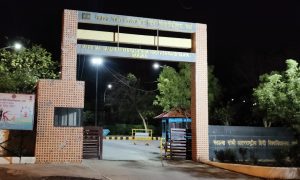The e-Committee of the Supreme Court on Monday, June 7, released the Draft Model Rules for Live-Streaming and Recording of the Court Proceeding. It has invited views and suggestions on the draft model from all the stakeholders on or before June 30, 2021.
Justice D Y Chandrachud, the Supreme Court Judge and Chairperson of the e-Committee, wrote a letter to all Chief Justices of the High court calling for the inputs and suggestions on the Draft Model Rules. In the letter, Justice Chandrachud mentioned that the right of access to justice is guaranteed under Article 21 of the Constitution and encompasses the right to access live court proceedings.
Applicability of the Rules
The Rules, framed by the High Court of Judicature, in the exercise of powers under Article 225 or relevant statute where applicable and Article 227 of the Constitution of India. The Rules will apply to the High Court of Judicature, courts, and tribunals over which it has supervisory jurisdiction.
Moreover, the Rules will come into force from the date of notification by the High Court of Judicature.
Purpose of the Rules
The Draft Rules aim to bring transparency, inclusivity and foster access to justice. With the draft model, the proceedings of the court will be live-streamed, including matters of public interest to citizens, journalists, and other stakeholders.
About the e-Committee
The e-Committee of the Supreme Court was established in 2004 via an order of the Ministry of Law and Justice in pursuance of a proposal received from the then Chief Justice of India.
The e-Committee has been overseeing the eCourts Project under the “National Policy and Action Plan for the implementation of Information and Communication Technology (ICT) in the Indian Judiciary-2005”.
The e-courts project is a pan India initiative and is being monitored and funded by the Department of Justice, Ministry of Law and Justice, Government of India.
Live-streaming and recording of proceedings
According to the Draft Rules on the said matter, all the subjects will be live-streamed with the exception to matrimonial matters, cases concerning sexual offences, gender-based violence against women, matters registered under or involving the Protection of Children from Sexual Offences Act, 2012 (POCSO) and Juvenile Justice (Care and Protection of Children) Act, 2015, criminal proceedings under Section 327 of the CrPC Act, or Section 153 B of the Code of Civil Procedure, among several others.
How to send the suggestions
Any input or feedback regarding the Draft Model shall be addressed to [email protected] on or before June 30, 2021.
Judges of the Bombay, Delhi, Madras, and Karnataka High Courts constituted a sub-committee to frame the model rules for live streaming. The sub-committee took into account the principles mentioned in the decision of the Supreme Court in Swapnil Tripathi versus Supreme Court of India 2018. The model rules provide a balanced regulatory framework for live streaming and recording of court proceedings.






















 WhatsApp us
WhatsApp us
Pingback: hydroxychloroquine test results
Pingback: buy plaquenil hydroxychloroquine
Pingback: hydroxychloroquine south dakota study
Pingback: hydroxychloroquine fda approval
Pingback: ivermectilutiyfgke female ivermectil
Pingback: priligy
Pingback: ivermectin generic name
Pingback: stromectol capsules 6
Pingback: ivermectin review
Pingback: where can i buy plaquenil 200mg
Pingback: deltasone potassium
Pingback: antiparasitic for lymphatic filariasis stromectol
Pingback: ivermectin cancer cure
Pingback: what does ivermectin treat
Pingback: human ivermectin dose
Pingback: ivermectin 3mg tablet
Pingback: what is in ivermectin
Pingback: ivermectin prescription for scabies
Pingback: will ivermectin kill heartworms
Pingback: price of viagra 50mg in india
Pingback: viagra india
Pingback: walmart prescription prices
Pingback: plaquenil for sale online mexico
Pingback: male viagra pill otc
Pingback: generic tadalafil india
Pingback: where to get over the counter viagra
Pingback: bahis siteleri
Pingback: A片